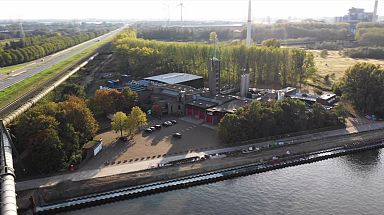Smart Regions takes a look at a European project that is significantly scaling up the production of bio based products.
Smart Regions takes a look at a European project that is significantly scaling up the production of bio-based products.
Breast milk is full of natural components known as oligosaccharides, which help to protect babies from viral and bacterial infections. These vital carbohydrates are the third most important constituent of breast milk. Now, thanks to a recent innovation, it is possible to mass produce these from bio products and mix them into powered baby formula.
The work to scale this up to an industrial level is taking place in Belgium at the Bio Base Europe Pilot Plant (BBEPP) in Ghent.
Previously a fire station, the Bio Base Europe Pilot Plant is unique in Europe. Its goal is to dramatically scale up innovative bio-products. Up to now, 120 businesses and 45 public projects have benefited from the facility’s services since 2008.
The plant’s total budget is 12.9 million euros, 3.4 million of which was provided by Europe’s Cohesion Policy. So far, 322 industrial projects have been completed.
Engineers say the variety of projects they get to work on from across Europe is fascinating.
"The most important thing, and what I like most about the job is that we all, all of us, have the same ambition to implement this bio-economy across the world and that politicians and people also realise that we can do it," says Isabel Prieto, a process engineer at the plant.
A company called Inbiose is using the plant to scale up production of oligosaccharides for baby milk powder.
"It's through advanced fermentation processes that we are now able to produce these carbohydrates, affordable and in the very large scale, and here you see it. It's a simple white, fluffy powder. It looks like sugar, tastes a little bit sweet, but it's actually a very advanced oligosaccharide. That's exactly the same molecule that we find in human milk," says Inbiose's CCO, Wesley Carpenter.
Prior to this innovation, oligosaccharides - which are vital for babies immune systems - were completely absent from powered baby milk formula.












